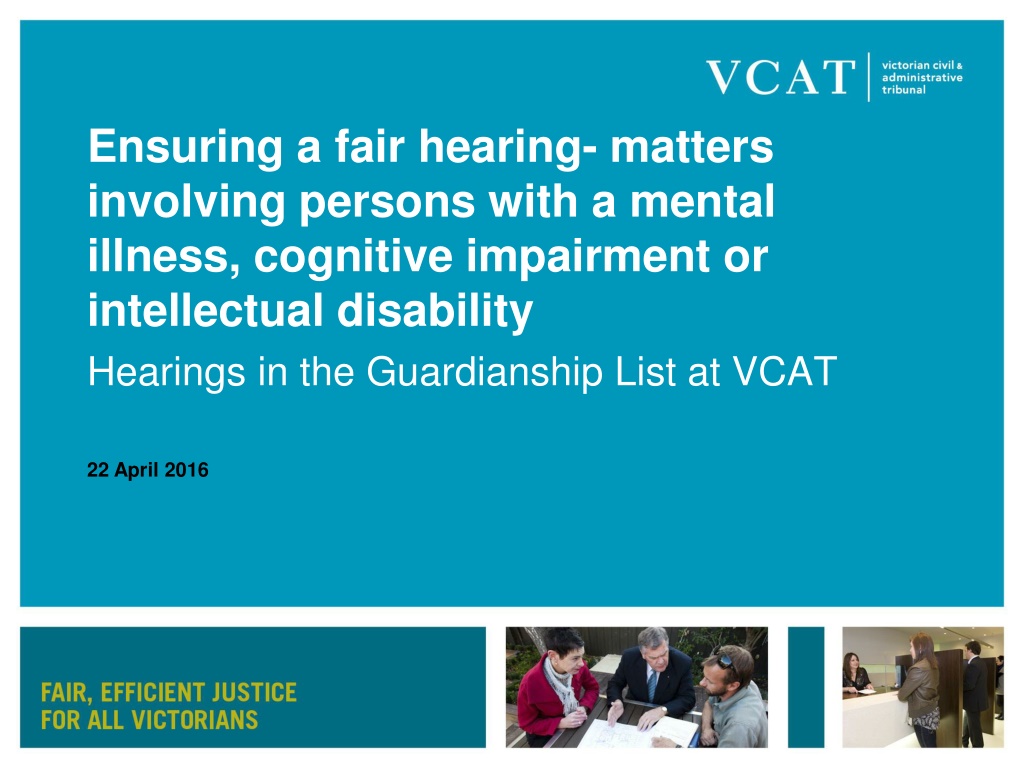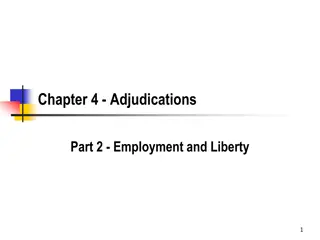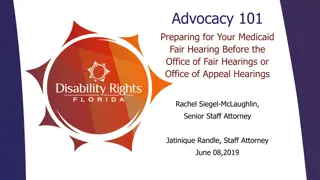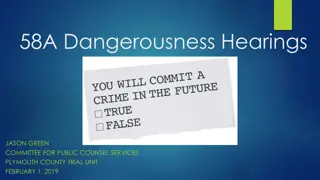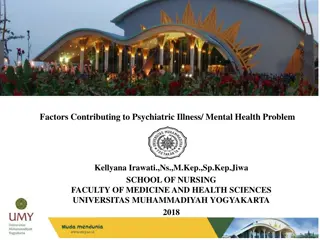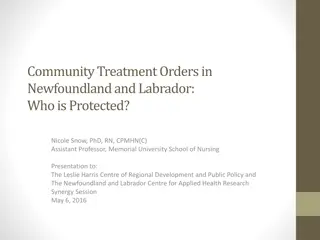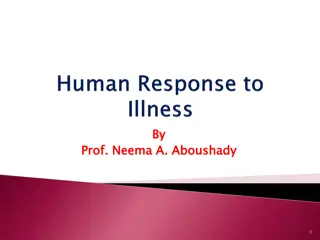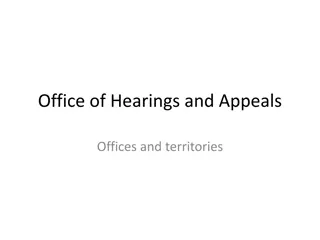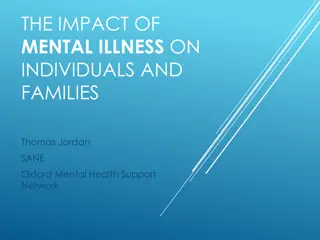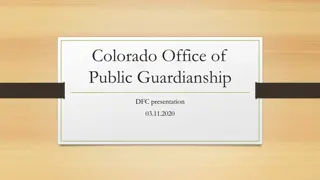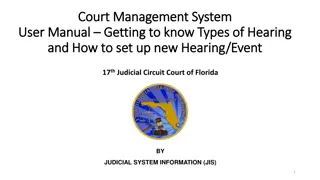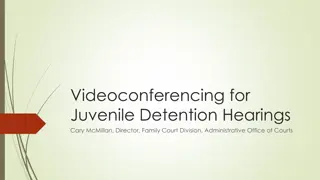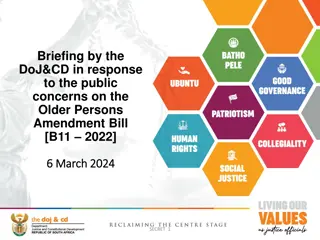Ensuring Fair Hearings for Persons with Mental Illness in VCAT Guardianship List
VCAT conducts hearings in its Guardianship List with a focus on minimizing formality and ensuring a fair process. Practical issues may arise, including parties being self-represented and dealing with technical evidence. The fairness of the hearing is crucial, especially when parties have not seen evidence beforehand. The Tribunal's role includes explaining evidence significance, testing it, and allowing questions to ensure a fair process for all involved.
Download Presentation

Please find below an Image/Link to download the presentation.
The content on the website is provided AS IS for your information and personal use only. It may not be sold, licensed, or shared on other websites without obtaining consent from the author. Download presentation by click this link. If you encounter any issues during the download, it is possible that the publisher has removed the file from their server.
E N D
Presentation Transcript
Ensuring a fair hearing- matters involving persons with a mental illness, cognitive impairment or intellectual disability Hearings in the Guardianship List at VCAT 22 April 2016
How VCAT conducts hearings in the guardianship list the law Minimise formality, technicality, time (VCAT Act) Not bound by the rules of evidence (VCAT Act) Must allow a party reasonable opportunity to call or give evidence, examine, cross examine witnesses(VCAT act) Bound by the rules of natural justice no bias, fair hearing (VCAT Act) 2
How VCAT conducts hearings in the guardianship list practical issues Preferred attendance of the proposed represented person Most parties self-represented Technical medical, health practitioner ,expert evidence Parties may not have read or understood the expert evidence Possibly technical legal issues Family tensions Privacy issues 3
Three situations relevant to fairness of the hearing Parties may not have seen or understood the expert evidence before the hearing and usually the expert does not attend The capacity of the proposed represented person is a central issue - she/he may not have seen or understood the expert evidence , may disagree with it Sometimes the Tribunal member meets privately with the proposed represented person 4
Parties have not seen the evidence before the hearing Usually no legal representation Tribunal s task to ensure hearing is fair Explain the significance of the evidence Give copies (are there privacy issues?) Summarise the evidence Test the evidence Ask if they have questions If possible, telephone the witness to answer questions Adjourn if necessary for questions or another opinion Weight to be given expert evidence
Proposed represented person and evidence about their capacity Explain the significance of the evidence Summarise the evidence Mention all the evidence can be confronting for parties Test the evidence Allow PRP to ask questions about it, deal with any disagreement frankly Telephone the expert with questions or adjourn if necessary Fair hearing does not mean accepting everything the PRP says Weigh evidence of all parties
Private meeting with the proposed represented person Why meet privately? Managing this procedure Why isn t it a breach of the fair hearing rule? Purposes of the guardianship legislation protection of the PRP, wishes of the PRP Any problems?
